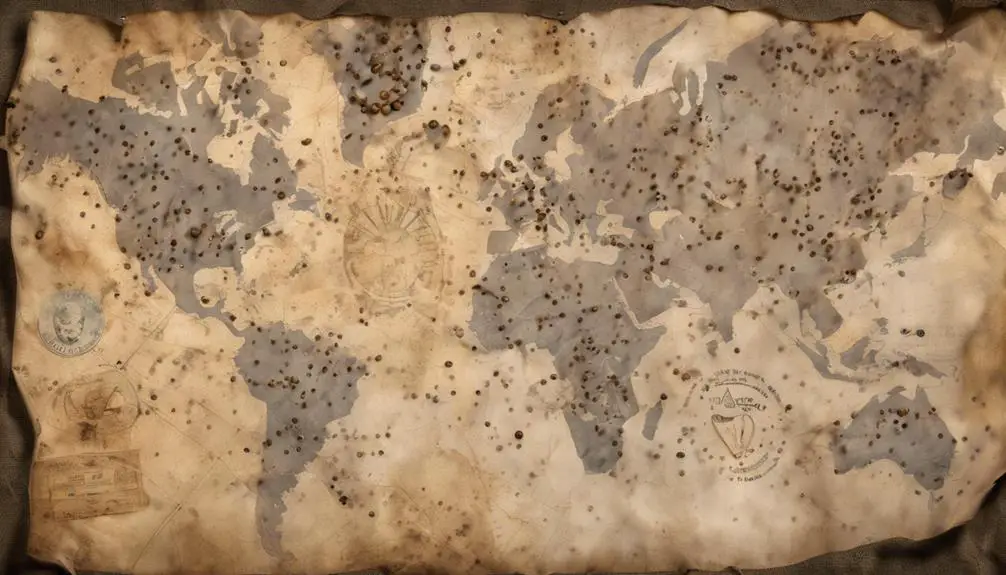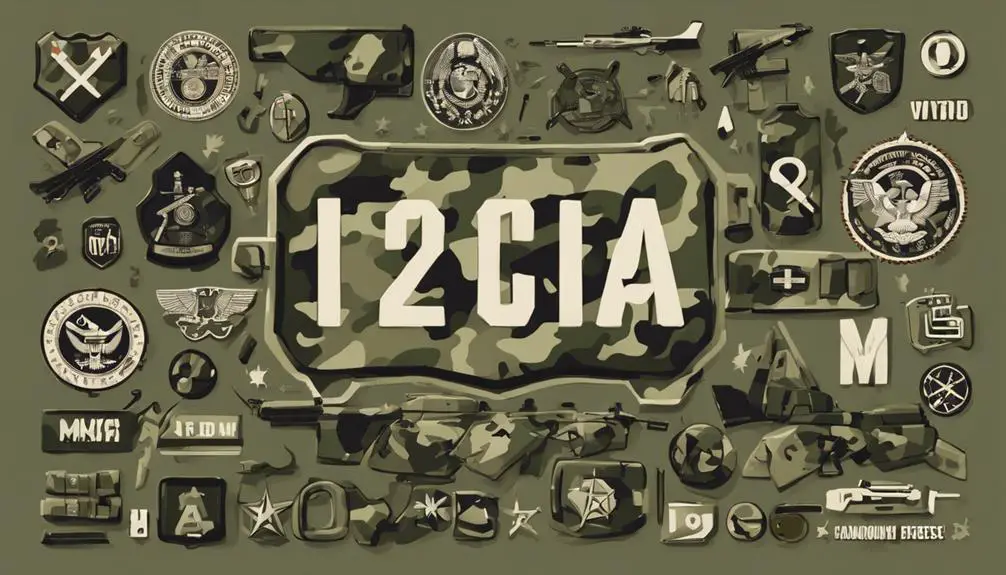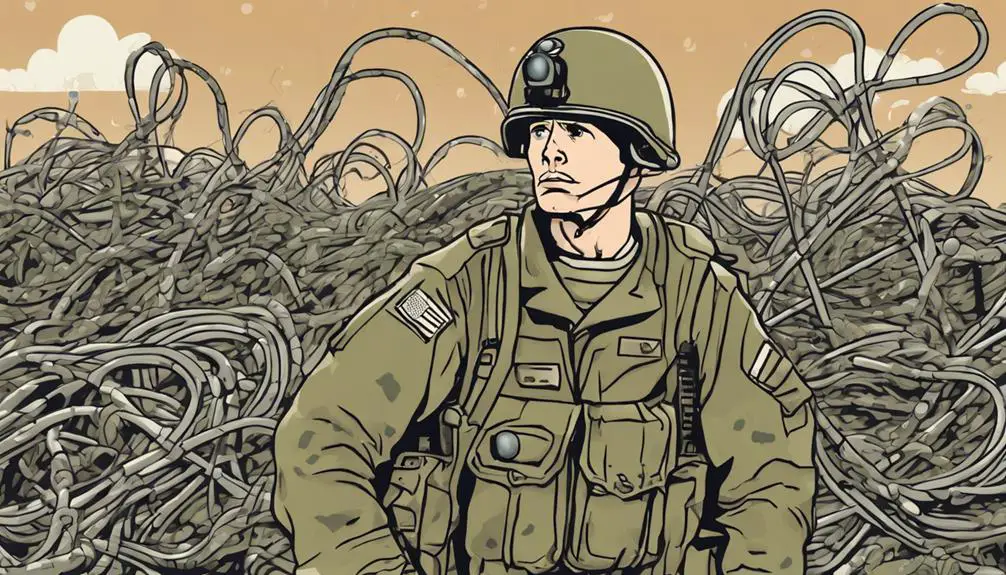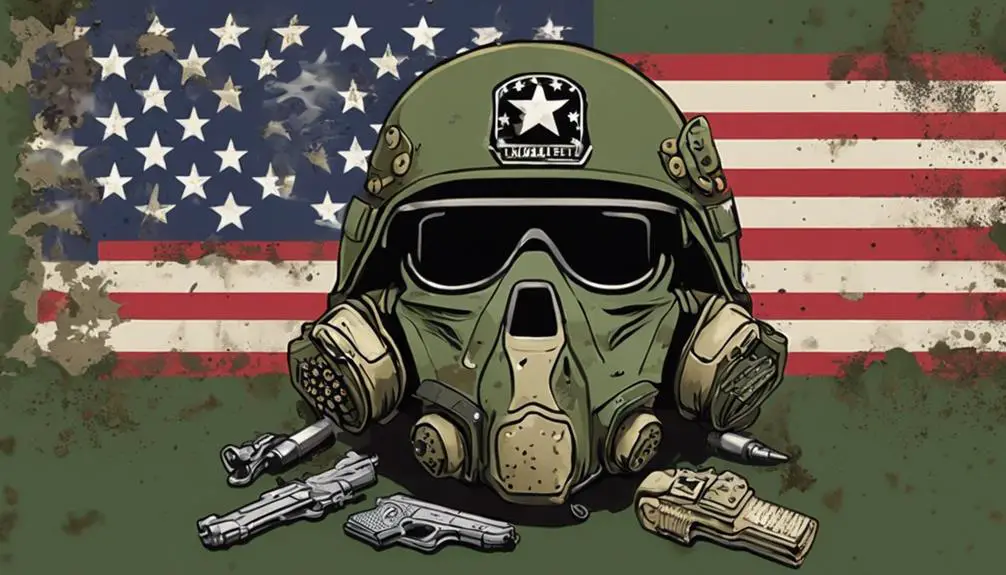You're about to enter a world of shorthand phrases, colloquialisms, and acronyms that reveal the unique culture and camaraderie within the military community. Military slang originated in the 19th century, adapting civilian slang to create a unique language. In combat zones, phrases like 'haji' or 'muj' are common, conveying complex ideas quickly. Acronyms like 'SITREP' and 'EOD' are essential for effective communication. Embracing military slang is a way of embracing a way of life, but be aware that it may not translate well outside the military community. As you explore further, you'll discover more about this exclusive language.
Origins of Military Slang

Military slang has its origins in the early 19th century, when soldiers adapted civilian slang to create a unique language that reflected their experiences and camaraderie. You might be surprised to learn that military slang has a rich linguistic evolution, shaped by historical roots that date back centuries. In the early days, soldiers borrowed phrases and words from civilian life, adapting them to fit their new reality on the battlefield. This unique language allowed soldiers to communicate efficiently, often using humor and irony to cope with the harsh realities of war.
As you explore further into the history of military slang, you'll discover that it's not just about creating new words or phrases. It's about the cultural and social context in which they emerged. Military slang is a reflection of the soldiers' experiences, their struggles, and their sense of community. It's a language that's deeply rooted in history, shaped by the events, people, and places that have shaped the military over time.
Slang in Combat Zones
In the chaos of combat zones, you're likely to hear phrases like 'haji' or 'muj' being tossed around, slang terms that have become an integral part of the linguistic landscape of modern warfare. These colloquialisms often emerge as a way to quickly communicate complex ideas or emotions in high-pressure situations.
Battle cries, like 'Oorah!' or 'Hooah!', are used to boost morale and intimidate enemies. War jargon, on the other hand, serves as a shorthand for complex military concepts, allowing soldiers to rapidly convey vital information.
In the heat of battle, every second counts, and using slang terms can mean the difference between life and death. By adopting these colloquialisms, soldiers create a sense of camaraderie and shared experience, fostering a unique cultural identity within the military.
As you navigate the complexities of combat, understanding these slang terms can help you stay one step ahead of the enemy and stay connected with your fellow soldiers.
Military Acronyms Decoded

You're likely familiar with abbreviations like 'SITREP' and 'COB,' but decoding the alphabet soup of military acronyms can be a challenging task. As a Codebreaker's Guide, navigating the complex world of military acronyms is crucial to avoid Acronym Overload.
Here are a few important acronyms to get you started:
- SITREP: Situation Report, a briefing on the current situation.
- COB: Close of Business, indicating the end of the workday.
- COMMS: Communications, referring to radio or telephone communications.
- EOD: Explosive Ordnance Disposal, a unit that handles bomb disposal.
Mastering these acronyms will help you better understand military communications and avoid confusion.
As you explore further into the world of military slang, you'll encounter many more acronyms. Remember, staying informed is key to avoiding Acronym Overload.
Slang and Military Culture
Discover the world of military slang, where phrases like 'HOOAH' and 'OORAH' become a language all their own. As you explore further, you'll realize that military slang is more than just a collection of quirky phrases – it's an integral part of military culture. It's a way to establish a sense of belonging, to signal that you're part of the military community. When you use military slang, you're not just speaking a language; you're asserting your military identity. This language serves as a badge of honor, distinguishing those who've served from those who haven't.
Cultural assimilation plays a significant role in the adoption of military slang. As new recruits enter the military, they're immersed in a unique cultural environment that shapes their language, values, and behaviors. Military slang becomes a tool for socialization, helping newcomers adapt to the military's distinct culture. By embracing this language, you're not only communicating effectively but also signaling your commitment to the military community.
As you navigate the world of military slang, remember that it's not just about speaking the language – it's about embracing a way of life.
Lost in Translation

As you adopt military slang, you'll inevitably encounter phrases that don't translate well outside the military community, leaving civilians puzzled and confused. This is because military culture is unique, with its own language, customs, and traditions.
When you use military slang in everyday conversations, you may unintentionally create cultural barriers and language faux pas.
Here are some examples of military slang that can get lost in translation:
- 'SITREP': A Situation Report, which might confuse civilians who aren't familiar with military jargon.
- 'Oscar Mike': A phrase used to confirm that a task is underway, but may sound like gibberish to outsiders.
- 'ROE': Rules of Engagement, which can be confusing if taken out of context.
- 'HOOAH': An expression of enthusiasm or excitement, but may be misinterpreted by those unfamiliar with military culture.
When communicating with civilians, it's essential to be mindful of these cultural barriers and language faux pas. Being aware of these potential miscommunications can help you better connect with those outside the military community.
Frequently Asked Questions
Can Civilians Use Military Slang in Casual Conversations?
When you casually drop military slang into conversations, you might wonder if it's okay to do so.
While it's not illegal, consider the implications of slang appropriation.
Are you genuinely connected to the military community, or are you using their lingo to fabricate a casual identity?
Be mindful of cultural context and avoid exploiting terms that hold significance for those who've served.
Use slang thoughtfully, and avoid appropriating it for a cool factor.
Are Military Slang Words Used Universally Across All Branches?
You might assume that military slang is used universally across all branches, but that's not entirely true. Branch variations and service differences come into play, leading to distinct slang vocabularies.
While some terms are widely recognized, others are specific to certain branches or roles. You'll find that the Army, Navy, Air Force, and Marines each have their own unique slang, reflecting their individual cultures and histories.
Can Military Slang Be Used in Formal Military Communications?
When communicating through official channels, you'll want to maintain a formal tone. In formal military communications, it's best to avoid using slang or colloquialisms, as they can be misinterpreted or misunderstood.
Stick to standard language and protocol to guarantee clarity and precision. While military slang might be convenient, it's not suitable for formal reports, briefings, or official documents.
You'll be taken more seriously and secure your message is conveyed effectively by using proper language.
Are There Any Military Slang Words That Are No Longer Used?
You might be surprised to learn that many military slang words have fallen out of use over time. These lost phrases and forgotten expressions were once common, but have since been replaced by newer terms.
You'll no longer hear phrases like 'GI can,' which referred to a mess kit, or 'Sam Brown,' a type of belt. As language evolves, old slang is phased out, making way for new terms that better suit modern military culture.
Can Military Slang Be Used in a Humorous or Ironic Way?
You might be surprised how military slang can be used to add a dash of sarcastic humor to your conversations. When used in a witty way, these phrases can become hilarious one-liners.
Imagine throwing in a 'Hooah' to express excitement or saying 'Roger that' to acknowledge a ridiculous request.
It's all about delivery and tone. With the right timing, military slang can be a humorous way to poke fun at serious situations or add irony to everyday conversations.
Conclusion
As you step out of the military bubble, the familiar rhythms of slang fade into the distance, like a patrol radio frequency switching to static.
The acronyms, once a second language, now gather dust in your memory.
But the memories of camaraderie, forged in the fires of combat, remain.
The slang may be lost in translation, but the bonds formed in the trenches remain unbroken, a tribute to the power of military culture.







